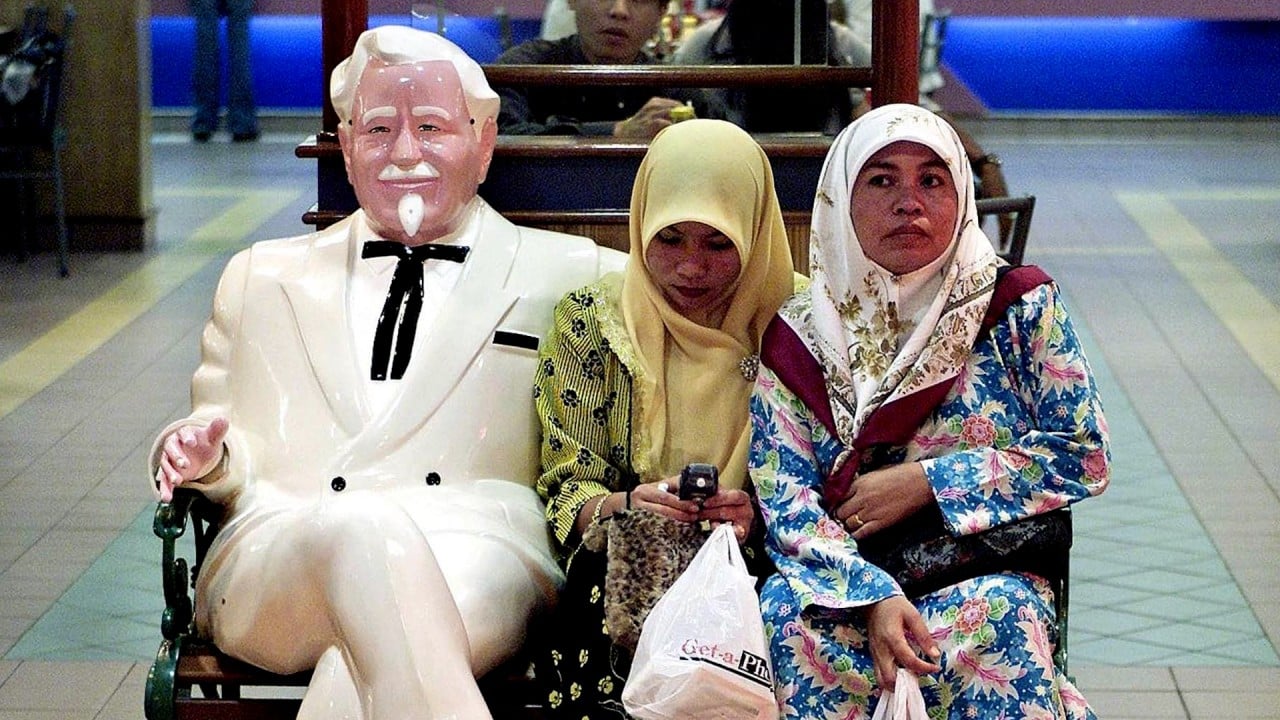Malaysia’s obesity epidemic: experts say education key to counter prediction most children will be overweight by 2035
- Data from the World Obesity Foundation projects that more than two out of every three children in Malaysia will be overweight by 2035
- Experts say proposed solutions like shutting down unhealthy late-night eateries will not solve what is fundamentally a lifestyle problem caused by a lack of health awareness
Malaysia
+ FOLLOW

Joseph Sipalan
+ FOLLOW
Published: 2:57pm, 13 May 2024
Why you can trust SCMP
Malaysia’s government needs to drive a revolution in healthy eating habits and exercise to reverse a stark obesity trend, health experts say, as a global survey projected that more than two out of every three children in the country will be overweight by 2035.
That estimate is based on new data released last week by the World Obesity Foundation, And while Malaysia faces one of the more dire predictions, the data suggests obesity is set to surge across the globe, despite a World Health Organization campaign launched a decade ago to combat it.
Rising adult obesity has become a major issue among Malaysia and its neighbours, with seven of the 10 members of the Association of Southeast Asian Nations making the top-20 list of countries with the fastest growing proportion of adults who are overweight or obese. That list includes Laos and Vietnam, which filled the top two spots, as well as Thailand, Indonesia, Myanmar, Cambodia and Malaysia.
In Malaysia, suggested solutions to the obesity epidemic have included restricting the operating hours of hugely popular 24-hour mamak restaurants, which serve cheap but calorie-dense foods like roti canai – a popular pan-fried flatbread.
But such a draconian move would not address the fundamental causes of the trend, which are closely tied to bad habits formed during childhood, according to Azizan Abdul Aziz, the president of the Malaysian Medical Association.
“Education should be our main focus, with regular community based programmes. We have not been doing enough in this area. Government awareness campaigns have not been effective enough to influence behavioural or lifestyle changes,” Azizan told This Week in Asia.
“Participation in sports or exercise should be emphasised or encouraged from an early age, in schools during children’s habit-forming years, for it to become part of lifestyles to remain active in adulthood.”

Street food stalls and restaurants in Jalan Alor in Kuala Lumpur, Malaysia. Photo: Getty Images
An April proposal by the Consumers Association of Penang to combat obesity by shutting down the country’s ubiquitous mamak restaurants was broadly panned by Malaysians, who argued that the eateries are a national institution that serve the needs of the many.
Mamak restaurants are seen as one of the last vestiges of multicultural Malaysia, serving everyone from late shift workers and university students rushing to finish their dissertations to football fans looking to watch live matches of their favourite Premier League teams.
“I could go to the pub to watch Liverpool play, but that can get expensive and some of my friends don’t drink. The mamak is the easiest option for all of us,” sales executive K Kumar, 26, told This Week in Asia.
In 2022, Malaysia’s national health and morbidity survey (NHMS) found that 30.5 per cent of children were either overweight or obese, driven by poor dietary habits and widespread sedentary behaviour caused, in large part, by screen time on phones and computers replacing physical activity.
Malaysia’s government has launched healthy living campaigns before to tackle the country’s surging rates of non-communicable diseases (NCD) such as heart disease, strokes and diabetes, which have placed an increasing burden on the national healthcare system.

01:54
KFC Malaysia temporarily closes some outlets amid anti-Israel boycott
KFC Malaysia temporarily closes some outlets amid anti-Israel boycott
In 2019, the government imposed a “sugar tax” that levied 40 sen (US$0.08) per litre of sweetened beverages to curb the consumption of high-calorie drinks. Prime Minister Anwar Ibrahim raised the levy to 50 sen a litre under his 2024 budget.
In a white paper presented to parliament last year, the health ministry identified obesity as the main contributor to the prevalence of NCDs in the country. It estimated that around 98 per cent of Malaysia’s adult population have at least one NCD risk factor.
Health Minister Dzulkefly Ahmad said last month that poor health awareness among Malaysians is underpinning the crisis.
“It must be remembered that bad eating habits and a lack of physical activities are two main components that contribute to obesity,” Dzulkefly said. “Each individual is responsible for his or her own eating habits and lifestyle.”
The proposed limitations on mamak restaurants triggered strong pushback from Malaysians on social media, with many arguing that people have the right to free choice.
“I’m all for a healthier lifestyle. But people are going to eat junk if they’re already decided to. Freedom of speech, freedom of choice of food,” read a Facebook comment to a post on the issue by one Christopher Wu.
“Mamak is part of our culture. Educate, [don’t] assert this kind of control.”
